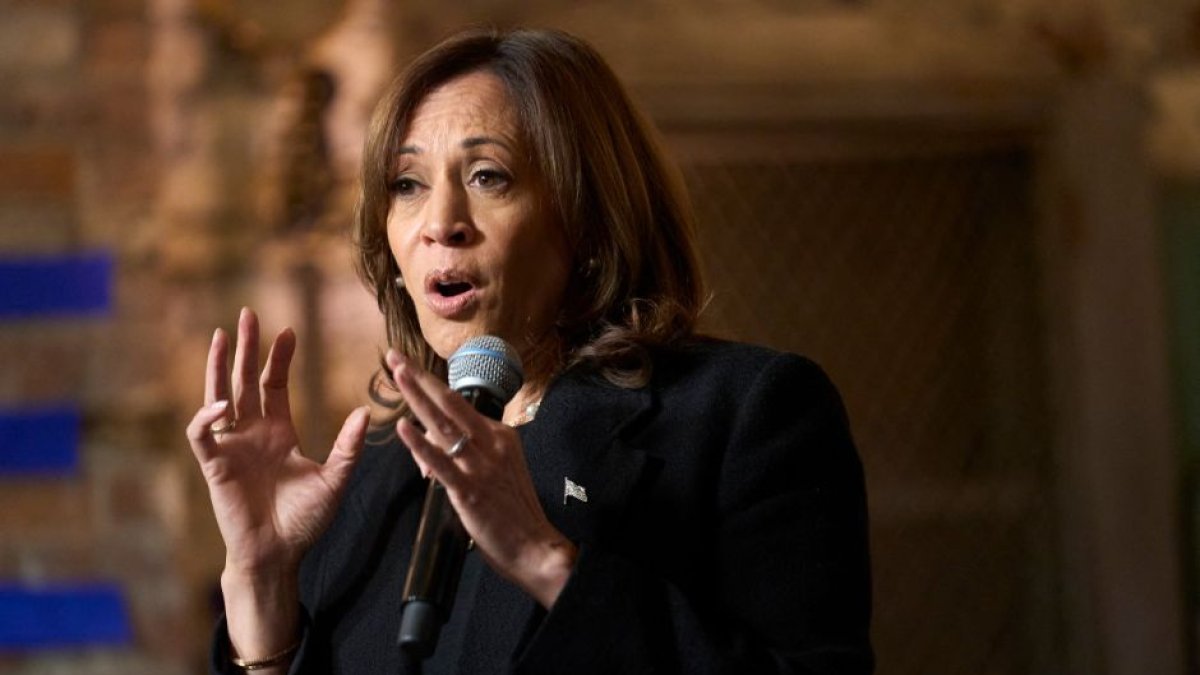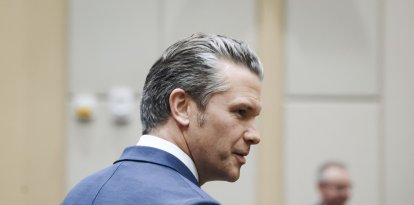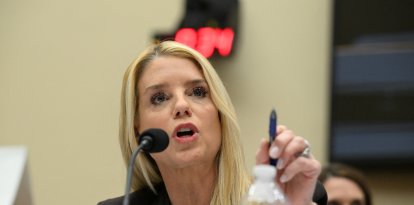CNN confirms plagiarism in Kamala Harris' book, but other media justify the 'mistake'
The network reviewed several passages of the Democratic candidate's book and concluded that some fragments were taken from other sources without proper attribution.

U.S. Vice President and Democratic presidential candidate Kamala Harris.
CNN confirmed that Democratic presidential candidate Kamala Harris engaged in plagiarism in her book "Intelligence on Crime: A Career Prosecutor's Plan to Make Us Safer." However, other media have preferred to minimize or justify the incident, defending the candidate amid the controversy.
CNN's investigation
The network reviewed several passages in Harris' book that were pointed out on social media by Christopher Rufo, a member of the conservative Manhattan Institute. CNN concluded that some of these excerpts were extracted from other sources without proper attribution. In particular, they acknowledged that portions of the text appear to have been copied directly from a John Jay College of Criminal Justice press release without the necessary quotation marks or proper attribution.
In addition, CNN identified another passage with language "very similar" to an NBC News report on public school graduation rates in several U.S. cities in 2008.
Justifications from other media
In the face of these revelations, some media outlets chose to justify Harris' actions. The Washington Post acknowledged that the candidate did not use quotation marks in copied texts but suggested that it was not her direct responsibility as she was not involved in editing the final formatting. They also mentioned that these types of errors were common at a time when plagiarism detection tools were not yet as advanced.
The New York Times attempted to downplay the impact of the allegations, pointing to a plagiarism expert who deemed Harris's errors as not serious, downplaying the significance of the infractions committed in her book.
Other outlets, such as The Daily Beast, shifted the focus to a defense of Harris, citing James Singer, a campaign spokesman for the candidate, who suggested that these allegations are part of a "desperate effort" to discredit Harris in her presidential race.
The plagiarism accusation
Dr. Stefan Weber, nicknamed the "Plagiarism Hunter," conducted a detailed analysis of Harris' book and found multiple passages copied from sources such as The Associated Press and Wikipedia, without proper attribution. These findings were amplified by Rufo, who highlighted specific examples, such as an account of an anti-drug program in High Point, North Carolina, and a paragraph about the Midtown Community Court in New York, both of which were copied almost verbatim without citing the original sources.
Christopher Rufo, the journalist who amplified Weber's findings, called on Harris and his publisher to offer a public apology and retract the plagiarized passages. "There is nothing smart about plagiarism, which is the equivalent of an academic crime," Rufo wrote, ironically referring to the title of Harris's book, "Intelligence Against Crime." According to him, both the author and her publisher should correct these errors and issue a formal statement.
The plagiarism allegations represent a blow to Harris' credibility at a key moment in her campaign, and while some in the media are trying to soften the impact, the investigation has raised serious questions about the integrity of the book and the editorial process behind its publication.

























